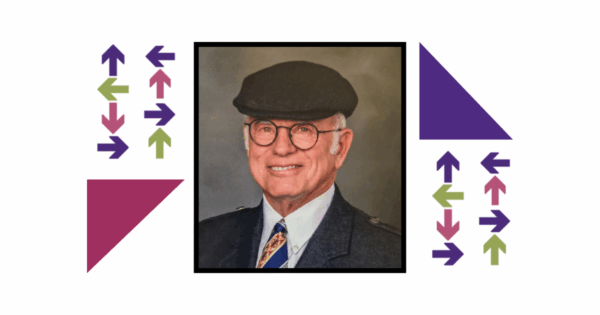Written by LearningRx Client: MacGregor Kimsey
The doctor’s words lingered longer than I expected: “Your recovery is remarkable.”
I had just survived a brain hemorrhage, the culmination of years of high blood pressure I had mostly ignored. Physically, I was back on my feet. Mentally, though, I could feel the edges of my sharpness dulling. Names would slip away, thoughts scattered mid-sentence, and conversations in crowded rooms became exercises in frustration. I had long taken my mental agility for granted, assuming it would endure as effortlessly as breathing.
That assumption shattered. Suddenly, I realized that if I could train my body, why not train my mind? Why not approach mental fitness the way we approach physical exercise: consistently, intentionally, and with care?
The answer came in the form of LearningRx, a brain-training program I had seen mentioned in articles and recommended by friends. Skeptical at first, I hesitated. Could structured cognitive exercises really restore focus, memory, and mental stamina at this stage of life? Curiosity won, and I signed up.
Walking into my first session, I was greeted with a friendly smile and a room full of activity tools I hadn’t expected. This was not a classroom, and there were no lectures. It was more like a gym for the mind. My facilitator began with a cognitive assessment, laying out a map of the mental skills that underpin everyday life: working memory, visual and auditory recall, processing speed, attention, logic. Seeing these abilities named, categorized, measured, made me realize how much I had taken for granted.
The exercises themselves were challenging, but also playful. Some days I played card games designed to stretch memory. Other days, puzzles, word problems, and listening drills demanded both speed and precision. Each task pushed me to focus, to adjust, to react. At times, I left mentally exhausted, like after a long jog. Other days, invigorated, alert, and proud of the small victories. Over time, these weekly sessions became a rhythm, a spa for the mind—as essential as morning walks, good food, and quiet reflection.
At first, progress felt subtle. But gradually, I noticed changes outside the training room. I could follow conversations more easily, even in noisy environments. Reading comprehension improved. I was less distracted by interruptions, more able to focus on complex tasks. The tests confirmed it, but the most meaningful evidence came from others. Friends noticed my clarity. Strangers commented on my attentiveness. And my adult children, with a mixture of relief and humor, declared, “Our new and improved Dad—back to normal and beyond.”
Those words have stayed with me. Back to normal and beyond. They capture something essential about aging. Too often, we assume that growing older inevitably means decline—mental, physical, emotional. But what if aging is also an opportunity? What if the mind, like the body, can be strengthened, refined, and renewed well into later decades?
The LearningRx program taught me that mental fitness is multidimensional. Memory alone is not enough. Attention, reasoning, processing speed, auditory and visual recall—all must work together to navigate the world effectively. Each skill contributes to everyday success: remembering a friend’s name, following a complex conversation, staying present in work and family life, making thoughtful decisions, even enjoying the simple pleasure of a book or a puzzle.
What struck me most was how these exercises rippled into daily life. I became more patient, more attentive, more present. Tasks that had once felt cumbersome or frustrating became manageable again. Conversations felt easier. I could focus on the moment rather than worrying about what I might forget. Even small interactions—chatting with a barista, following a news story, remembering a phone number—felt smoother, more fluid.
LearningRx has become more than a program. It is part of a broader practice of wellness, alongside exercise, nutrition, travel, reading, and reflection. I call it my spa for the mind. And it has reshaped my understanding of what it means to age intentionally. The mind, like the body, requires care, attention, and challenge. When we invest in it, the results extend beyond personal satisfaction—they enrich relationships, work, and the ordinary moments that define life.
I tell this story because I know many adults over 40—maybe even 60 or 70—feel the creeping edges of distraction, forgetfulness, or mental fatigue. There is a temptation to accept these changes as inevitable. I am here to say: they are not. The brain, at any stage of life, can be exercised, strengthened, and renewed. Improvement may not be instantaneous, and the work is deliberate. But the results are tangible, profound, and life-affirming.
For me, the journey began in the shadow of a health scare. I consider myself lucky. Lucky to have survived a serious medical event. Lucky to have discovered a way to reclaim focus, clarity, and engagement. Lucky to have experienced the joy of mental resilience returning week by week, exercise by exercise. And lucky to have felt the ripple of that improvement in the eyes and voices of family, friends, and even casual acquaintances who noticed the change.
Aging, I have learned, is not surrender. It is another chapter. And the mind, if given the care it deserves, can carry us further than we ever imagined.
So, to anyone wondering if it’s too late to invest in mental fitness: it isn’t. There is power in deliberate practice, joy in challenge, and reward in presence. The body ages, yes—but the mind can continue to grow, sharpen, and surprise you. That, I have discovered, is a gift worth pursuing.
*Results are the personal testimony of a LearningRx client. Every brain is unique, so you and your loved ones may or may not achieve the same outcomes, but we’d love to connect with you to see how we could work together to help you achieve your goals!

